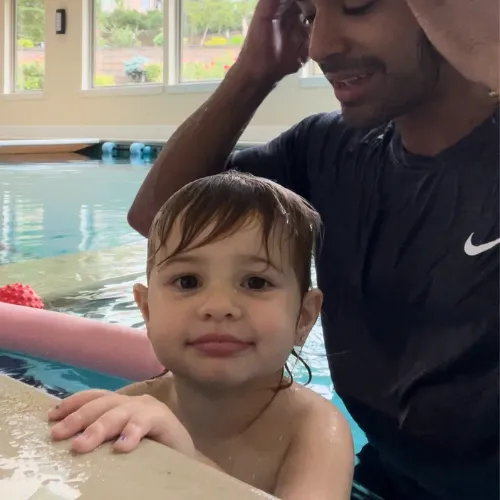
Swim Safety & Success
Why Swim Lessons Are Essential for Children
Teaching your child to swim is more than just a fun activity—it’s a vital life skill that promotes safety, confidence, and physical development. With so many benefits to learning water skills, understanding the right approach can feel overwhelming. From basic water safety to advanced techniques, structured swim lessons help children gain skills that last a lifetime. This guide will walk you through why swim lessons are so important and how they can positively impact your child’s growth and well-being.
1. Water Safety is a Lifesaving Skill
The number one reason for swim lessons is safety. Drowning is a leading cause of accidental death in young children, and learning to swim dramatically reduces that risk. Lessons teach kids how to float, tread water, and move confidently, giving them critical skills that could save their life. Starting early gives both kids and parents peace of mind around pools, beaches, and lakes.
2. Build Confidence and Overcome Fear
Many children feel nervous or scared of the water. Swim lessons create a safe, supportive space where they can slowly become comfortable. With guidance from a skilled instructor, kids learn to trust themselves, overcome fear, and feel empowered. That confidence doesn’t just stay in the pool — it carries into school, sports, and other challenges in life.
3. Develop Physical Strength and Coordination
Swimming engages almost every muscle in the body. It builds core strength, improves coordination, and promotes cardiovascular health and flexibility. Beyond fitness, the rhythm of swimming helps children develop better breathing patterns and lung capacity — all while having fun.
4. Encourage Social Skills and Teamwork
Even in small groups or parent-child classes, children learn to interact, listen, and encourage one another. These early social experiences teach cooperation, communication, and camaraderie — skills that extend far beyond the pool.
5. Promote Fun and a Lifelong Love of Water
Swim lessons should feel like play. Games, creative exercises, and skill challenges make learning fun and engaging. Positive early experiences create a lifelong love of swimming, opening doors to water sports like snorkeling, surfing, or competitive swimming later on.
6. Adapt Lessons to Your Child’s Needs
Every child learns differently. Personalized instruction — whether it’s helping a child float on their back or easing fear of water in their ears — ensures lessons are both effective and enjoyable. Patience and flexibility help kids progress at their own pace, celebrating milestones safely and confidently.
7. Partner with Experienced Instructors
While casual swimming can be fun, a trained instructor provides proper technique, safety awareness, and confidence in the water. Experienced teachers tailor lessons to a child’s age, temperament, and skill level, creating a structured path toward success. Professional guidance turns early lessons into a lifetime of safe, confident swimming.
Final Thoughts
Swim lessons are more than just learning strokes — they’re about safety, confidence, strength, and joy. Every session equips your child with skills that last a lifetime, both in the water and beyond. With the right guidance, patience, and encouragement, your child won’t just learn to swim — they’ll learn to thrive.
